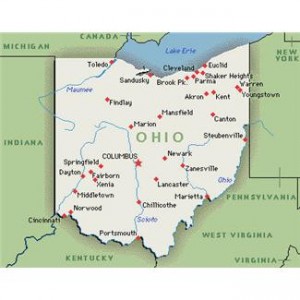Title insurer can’t transform contractual liability into loss insurable under professional liability policy
by Christopher Graham and Joseph Kelly
You have a contract. You’re obligated to pay a third party. And naturally, being a capitalist, you’d prefer not to take the hit. You’re creative. And you’re savvy about insurance. And you think, gee, maybe my D&O or professional liability insurer can pay instead of me. So you ask. But they refuse. They say: “That’s your contract, not our policy obligation.” So off to court you go. And the wearers of black robes decide who wins and loses! And so it was in Entitle Ins. Co. v. Darwin Select Ins. Co., Case No. 13-3269 (6th Cir. Jan. 29, 2014.
This time the insured was a title insurer. Its contracts were with mortgage lenders and real-estate sellers and buyer-borrower. The contracts were closing protection letters. And under those contracts, title insurer agreed to indemnify lender, seller, or buyer for certain misconduct by title insurer’s closing agent. The misconduct was agent’s theft. And the theft was of a whopping $3.9 million in escrowed funds.
Yikes, says title insurer. That’s a lot of dough! And, yes, we issued closing protection letters. And so yes, we have to make those who have them whole. But gee wiz, we really would prefer not to take a big hit. Title agent has no money; so out of luck there. But how about Darwin’s professional liability policy? What does that policy provide? Does it fit the claim and cover the loss?
Under the insuring agreement, Darwin agreed that it “will indemnify the Insured for Loss, including Defense Expenses, from any Claim or Extra-Contractual Claim first made against them during the Policy Period or any applicable Extended Reporting Period … for Professional Liability Wrongful Acts committed on or after the date of incorporation or formation of the Named Insured and prior to the end of the Policy Period.”
“Professional Liability Wrongful Act,” in the definitions, means “any actual or alleged act, error, omission, misstatement or misleading statement, in the performance of or failure to perform Professional Services … by any Insured, or by an individual or entity for whom the Company is legally responsible.”
Okay, that’s great–so it can be an actual or alleged act “by an individual or entity for whom the Company [(title insurer)] is legally responsible”? Wouldn’t that include the thieving title agent who stole the $3.9 million, you ask? And as title insurer, isn’t it “legally responsible” for what title agent did? And so shouldn’t Darwin as professional liability insurer pay?
No, says the court. Under the contract between title insurer and agent, the scope of the agency was limited to issuing title policies. It included nothing else; and, thus, none of the closing and escrow services title agent offered.
Title insurer’s liability for agent’s acts was limited to acts within the scope of agent’s very limited agency. And when agent stole the $3.9 million it was acting for itself rather than within the scope of the agency. “To the extent that [title agent] performed closing and escrow-related services for the clients, [it] did so on its own behalf”–so said the appeals court.
Although title agent had many victims, title insurer made whole only the victims having closing protection letter contracts. All victims purchased title insurance from title insurer via the rouge agent. But only some victims paid extra for a closing protection letter. Title insurer paid victims only because of it’s legal liability under closing protection letter contracts, not because it was “legally responsible” for the rouge agent’s acts.
As the court explained:
[Title insurer] asks that we interpret its insurance policy to allow [title insurer] to secure business by making contractual guarantees to its clients regarding the performance of third-party business partners that are not its agents and then force its insurer to foot the bill when that third-party fails to perform according to [title insurer’s] guarantee, despite [title insurer’s] disavowal of all non-contractual responsibility, legal or otherwise. Because this interpretation directly contravenes the language of its professional liability insurance policy, we must decline E[title insurer’s] request.
The district court also had held the claimed amounts weren’t “Loss” because the Loss definition carved-out “amounts due pursuant to an express contract or agreement . . . .” And it held that title insurer’s liability fell within an exclusion “for actual or alleged liability under any express contract or agreement.” As the district court explained, the closing protection letters were “a debt [the title insurer] voluntarily accepted, not a loss resulting from a wrongful act within the meaning of the Policy.” To hold otherwise would mean a party could “enter into a contract safe in the assumption that if he later decides to engage in an act which might be considered a breach, the insurance company will step forward to cover the consequences of his act if he was wrong; and if he was right, he still walks away with no consequence to himself. Such a practice is inimical to the entire concept of insurance.”
The appeals court didn’t address these issues because it didn’t have to. But they are additional arguments insurers will make when faced with insurance claims such as in this case. This type of litigation is seen with some frequency. And you should expect to see more of it, especially when there’s big money at stake making litigation cost easier to swallow.
Tags: Ohio, professional liability, title insurance, loss, contractual liability, contract exclusion, wrongful act
Category: D&O Digest, Professional Liability Insurance Digest Comment »

